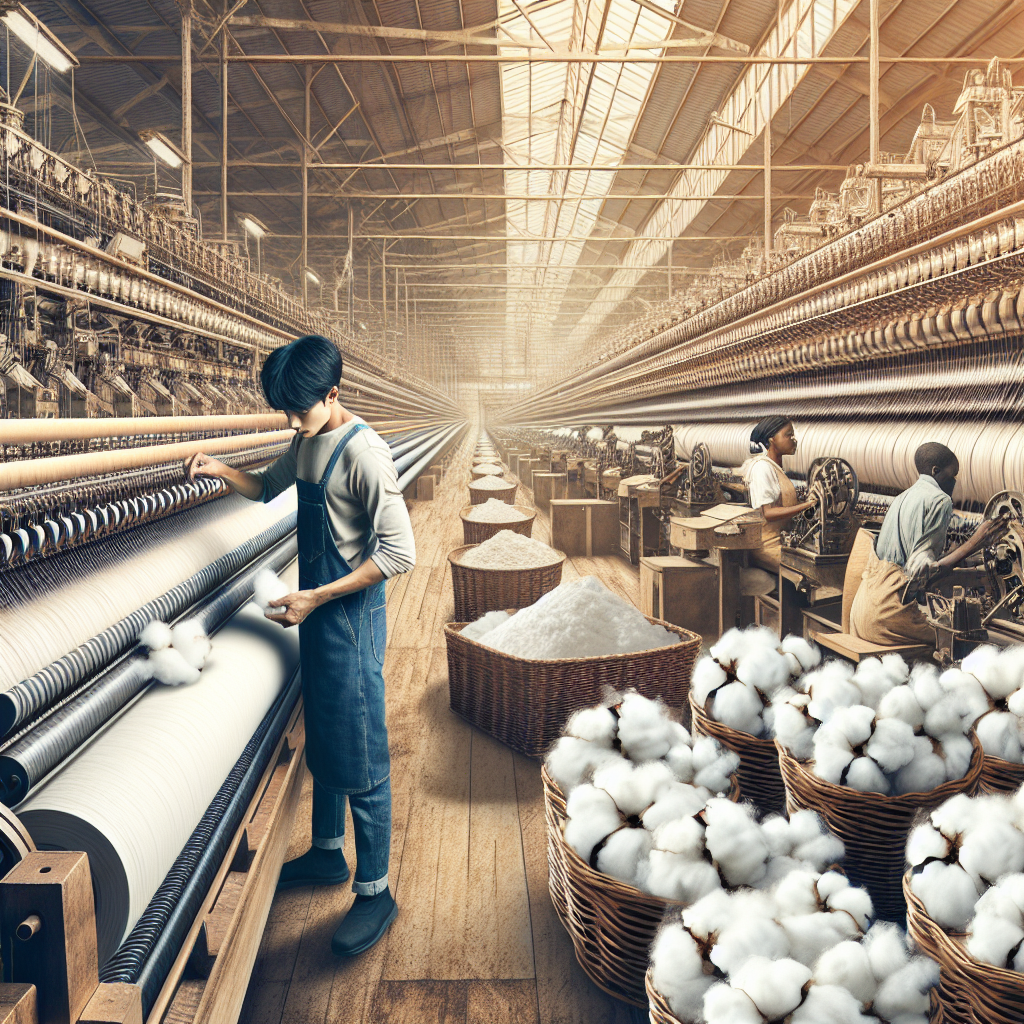WTO Head Highlights Africa's Cotton Investment Opportunities at World Cotton Day 2024
This year marks the first time the event is being held on African soil, showcasing Benin’s economic successes under the leadership of President Guillaume Athanase Talon.

At the World Cotton Day 2024 opening ceremony held in Cotonou, Benin on October 7, WTO Director-General Ngozi Okonjo-Iweala emphasized the WTO's ongoing support for the cotton sector, praising the host nation for its leadership and highlighting the significant investment opportunities for cotton in Africa. “I hope this World Cotton Day serves as a platform to coordinate our efforts to improve the conditions for cotton farmers and supports transformation of the sector, focusing on sustainable development and maximizing gains in growth, jobs, and opportunities,” she stated.
Celebrating Africa's Cotton Success
This year marks the first time the event is being held on African soil, showcasing Benin’s economic successes under the leadership of President Guillaume Athanase Talon. Director-General Okonjo-Iweala commended Benin for its robust economic performance and prudent management, positioning it as a leader in the Cotton4+ countries—a group that includes Burkina Faso, Chad, Mali, and Côte d'Ivoire. Together, these nations produce over 1 million tons of cotton annually, accounting for 50% of Africa's total cotton output and 4% of global production.
Key Role in Global Trade
In the global cotton trade landscape, West and Central Africa ranks as the third-largest exporter, following the United States and Brazil. The region's contribution to global trade has expanded significantly, growing from USD 8.2 billion in 2003 to USD 23 billion in 2022. Despite the high quality and environmentally friendly nature of African cotton, the sector faces challenges, including market distortions and the impacts of climate change.
Addressing Trade Inequities
Okonjo-Iweala noted that 20 years ago, the Cotton4 countries made a call to action at the WTO against unfair trade practices in cotton, which granted the sector unique status within the organization. She emphasized the need for leveling the playing field by reducing subsidies—currently at USD 8 billion—to allow developing countries greater market access and to enable them to reap the benefits of trade. Negotiations are ongoing to achieve these goals.
Investing in Competitiveness
On the development front, the Director-General highlighted significant progress made in supporting Cotton4 countries to enhance competitiveness and tap into both African and global cotton markets. "The African market for cotton alone is valued at USD 12 billion. We are exploring external opportunities, including the sports apparel value chain, which is expected to reach USD 250 billion by 2026," she added.
A key initiative, the "Partenariat pour le Coton," launched in February 2024, aims to foster public-private partnerships and empower Cotton4+ countries for sustainable transformation. The first phase of this initiative has been completed, including a baseline study that estimated these countries will need to attract USD 12 billion in investments over the next decade to fully realize the sector's potential, potentially creating 500,000 direct jobs, particularly for women and youth.
Mobilizing Resources for Investment
To facilitate the required investments, the WTO is actively mobilizing resources and calling on partners for financial and technical support for African cotton. A joint declaration has already been signed with organizations like the Islamic Trade Finance Corporation, the African Finance Corporation, Afreximbank, the United Nations Industrial Development Organization, and the International Trade Center.
Strengthening Regional Hubs
Okonjo-Iweala also praised the regional textile and clothing industrial hubs established by Cotton4 governments and their financial partners, particularly highlighting the Glo-Djigbe industrial park in Benin, which plays a critical role in connecting Benin to global cotton value chains.
Looking Forward: Strategic Partnerships
In her closing remarks, the Director-General stressed the importance of partners in the Partenariat pour le Coton prioritizing the development of concrete investment projects aligned with national priorities. Increased investment in infrastructure, capacity building, product certification, and logistics is essential for sustainable growth in the cotton sector. She urged all partners to leverage the World Cotton Day event to enhance cooperation and coordination, aiming for tangible improvements in the lives of cotton producers and traders across the continent.
As World Cotton Day 2024 unfolds, the collective efforts to strengthen the cotton sector can significantly contribute to sustainable economic development, creating opportunities and enhancing the livelihoods of those in the industry.
- READ MORE ON:
- Ngozi Okonjo-Iweala
- World Cotton Day










